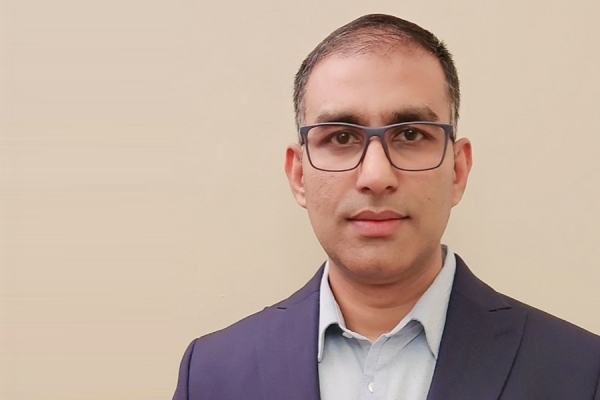 Biomedical sciences professor Vijendra Sharma is exploring pathways to treatment for Alzheimer’s disease.
Biomedical sciences professor Vijendra Sharma is exploring pathways to treatment for Alzheimer’s disease.
With a long-term goal of offering a novel approach to treating Alzheimer’s disease, professor Vijendra Sharma is researching biological pathways that could reverse long-term memory impairment.
Alzheimer’s disease is a chronic neurodegenerative disease characterized by a gradual loss of memory and cognition, leading to amnesia.
“First, we want to identify the cell types in the brain affected by Alzheimer’s disease,” says Dr. Sharma.
“Then we’ll study how stress alters protein synthesis pathways in those cell types to create drugs that target the affected cells and correct the dysregulated protein synthesis, which is critical for memories.”
An assistant professor in biomedical sciences who started his lab at the University of Windsor in January 2023, Sharma will focus on the integrated stress response pathway, which is activated in Alzheimer’s disease. Prolonged cellular stress along this pathway in the brains of patients impairs the formation of long-term memory.
“We don’t know which cell types in the brain are more sensitive or affected by cellular stress, so by looking at post-mortem brains of Alzheimer’s disease patients, we’ll identify the cells that are more sensitive to cellular stress and then use gene therapy to make them survive.”
In Alzheimer’s disease, the accumulation of neurotoxic proteins triggers the stress response to protect and promote cell survival. However, prolonged cellular stress and activation leads to cell death and subsequent brain atrophy.
To develop targeted medication or gene therapy, his team will engineer a viral vector that will control the activity of the integrated stress response pathway in specific cell types.
“When we take medicine, we have various side effects, with the main reason being that a drug will affect all cells, including healthy as well as diseased cells — it cannot differentiate,” Sharma says. “But by using gene therapy, we have the opportunity to target the affected cells in the Alzheimer’s brain.
“Like when you have a headache, we are taking medicine which goes through the entire system. Now we could have the opportunity to deliver medication to specific cell types.”
When we age, says Sharma, external and internal factors work together to inflame the brain, exert cellular stress, and affect memory strength. When you couple that with a neurological disorder, chronic cellular stress causes cell death, leading to severe memory loss.
Sharma is collaborating with experts in the field, including UWindsor colleagues from chemistry and biomedical sciences. His research project, titled Identification of cell-type-specific dysregulated mRNA translation in Alzheimer’s disease, got a boost with a one-year $20,000 WE-Spark Igniting Discovery grant.
“It is very important, especially for an early-career researcher like me, to be given financial support at this stage,” Sharma says.
“The grant is important because it will help me to develop projects and collect preliminary data so I can apply for more funding in the future.”
The WE-Spark Igniting Discovery grants provide seed funding to stimulate the development of early-stage, novel, and innovative health research and education projects in Windsor-Essex.
